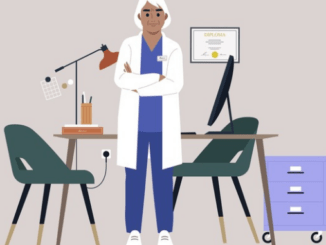
GPC UK and SASC UK have released a joint statement giving their thoughts on the recent proposals for regulatory change and the creation of a “primary care doctor”
CREDIT: This is an edited version of an article that originally appeared on BMA
In October 2022 the GMC publicly proposed that the Medical Performers List regulations be changed to allow non-GP doctors to work in primary care.
In May 2023, NHS England’s ‘Delivery plan for recovering access to primary care’ stated that it will “work with partners to facilitate ways in which doctors other than GPs, such as SAS doctors, can work in general practice as part of a multidisciplinary team to help increase practice capacity while providing a new and rewarding career option”. This would require new, more detailed legislation to extend the emergency regulatory changes that were introduced to allow staffing flexibility during the COVID pandemic.
Specialist, Associate Specialist, and Specialty (SAS) doctors play a vital role in NHS service delivery. They make significant contributions to the advancement of medicine and the profession in areas of leadership, education, research and governance.
However, the BMA is deeply concerned that DHSC and NHS England intend to push ahead with this hugely significant change to general practice and the role of SAS doctors without proper consideration of the consequences or agreement with the medical profession.
The proposed changes would apply to England only, with devolved national health departments expected to monitor developments closely.
The BMA does not believe that general practice currently has the staff, financial or premises resources to accommodate an intake of “primary care doctors”, nor does it believe that the proposals are being designed to benefit doctors who want to make the switch into primary care.
The proposals will not increase the number of GPs, nor will they help secondary care doctors who wish to train to be GPs.
It is imperative that the NHS does not rush into a decision that has unproven benefits and risks diminishing the GP role. We also strongly urge employers to carefully consider the consequences before making use of any regulatory changes.
The BMA has considered the three different ways in which non-GP “primary care doctors” could work in a general practice setting:
Seeing undifferentiated patients
The change in regulations would potentially allow non-GP doctors to see patients with undifferentiated illnesses. The BMA does not think this is viable for the following reasons:
- Managing undifferentiated illnesses is a particular skill that takes GPs years to develop and hone. Non-GPs will require significant training and supervision to enable them to do this.
- The supervision required to manage the risk for this role would be an additional burden on an already overstretched GP service.
- There is a strong risk of creating a two-tier system with a lower tier of supervised doctors being undervalued and open to exploitation.
- Doctors working in this way may lack opportunities for career progression and structured development.
- Acknowledging that many primary care doctors would be experienced clinicians, their lack of general practice experience would mean considerable additional supervision responsibilities for GPs. This would be especially significant at the outset of the doctor’s transition into the general practice setting.
- As for the supervision of GP trainees, supervisors of primary care doctors would need to be GP trainers, but there are insufficient numbers of trainers to take on this work.
- GP premises capacity is already stretched by Allied Health Professions training and provision for medical students.
- It would not be acceptable to recreate the situation with Additional Roles Reimbursement Scheme roles where supervision and development are unfunded.
- There is no clarity on risk and liability for supervising doctors.
- Allowing doctors who fail the Royal College of General Practitioners exams to become “Primary care doctors” cannot be a solution to differential attainment in these exams or inflexibility within existing training conditions.
- Due to competing demands on premises capacity in primary care, the arrival of “Primary care doctors” could displace fully trained sessional GPs. Competing supervision requirements could lead to the displacement of future GPs currently in training.
- It risks the creation of competing career pathways which have different levels of remuneration.
Seeing semi-undifferentiated patients
The proposed regulatory changes could allow non-GP doctors in primary care to see triaged patients within a determined range of specialities. The BMA does not think this is viable for the following reasons:
- It would require an effective triage system to select a suitable caseload for the “Primary care doctor”, which would be a further burden on under-resourced and under-doctored practices. Each doctor would have different skills, competencies, and knowledge bases. The triage system would have to be developed to support this so that patients were not triaged to a doctor who does not have the appropriate competencies. GP training is competency-based, meaning that GPs hold a recognised and complete set of competencies.
- “Primary care doctors” taking over work for patients who have particular conditions could lead to the narrowing of the skill set for the GPs within the practice.
Working as specialists seeing differentiated patients in a general practice setting
The proposed regulatory changes could allow non-GP doctors to work as specialists seeing referrals in a general practice setting. In principle, we support the idea of patients being able to see specialists closer to home and of secondary care doctors being able to run independent clinics in a primary care setting. However, we note that:
- Secondary care work is not funded under the global sum.
- It would be inappropriate for any premises capacity that can currently be found in primary care to be used in this way given the current demand for undifferentiated care.
- “Primary care doctors” seeing referrals in a primary care setting may have other benefits but would not reduce the general practice workload and could not legitimately be used by the government towards its target for increasing the number of doctors working in primary care in England.
- There are already specialists running independent clinics in primary care settings bringing their specialist knowledge to patients.
- Secondary care doctors delivering specialist care in general practice should be on national salary scales and terms and conditions of service according to their specialist experience, i.e., specialist, associate specialist or speciality doctor.



Be the first to comment